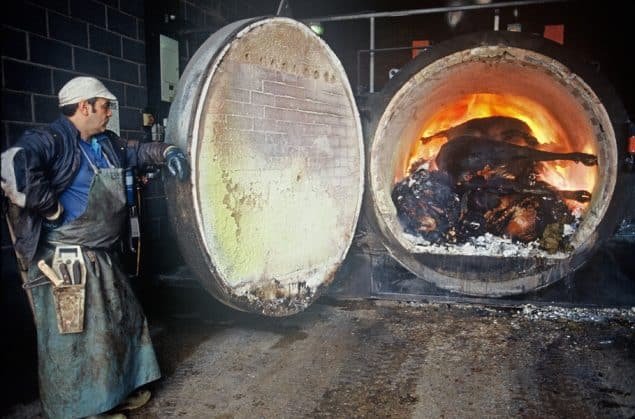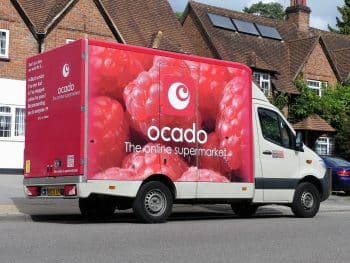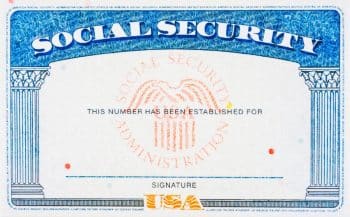Home » Spotlight • US business news » 10 Infamous Scandals In The Food Industry
10 Infamous Scandals In The Food Industry
https://www.whatjobs.com/news/what-news-topical/10-infamous-scandals-in-the-food-industry

By Hugh Fort in Spotlight, posted April 10, 2024

The food industry stands as a beacon of innovation and tradition with chefs around the world continuing to push boundaries about what can be done.
However, beneath the surface of delicious dishes and trusted brands lies a history peppered with controversy and scandal.
From dangerous health violations to deceptive labeling practices, the food industry has seen its fair share of incidents that have shaken consumer trust and prompted regulatory overhauls.
These scandals highlight problems in the global food supply chain.
They also serve as stark reminders of the importance of transparency, ethics, and safety in food production.
Here are 10 of the biggest scandals in the food industry
The Horse Meat Scandal (2013)
This scandal unfolded across Europe after tests revealed foods advertised as containing beef were, in fact, laced with horse meat.
It affected major retailers and brands and led to millions of products being pulled from shelves.
The incident caused public outrage.
It also raised serious questions about the integrity of the food supply chain.
There were also issues over traceability, and food labeling standards in the EU and beyond.
The Peanut Corporation of America Salmonella Outbreak (2008-2009):
The Peanut Corporation of America (PCA) faced criminal charges after knowingly shipping salmonella-tainted products.
It led to one of the largest food recalls in U.S. history.
There were over 700 reported cases of illness and nine deaths.
Stewart Parnell, former owner and president of PCA was convicted on 72 counts including conspiracy, fraud, and the introduction of adulterated food into interstate commerce with the intent to defraud or mislead.
In 2015, he was sentenced to 28 years in prison.
This was the harshest penalty ever for a corporate executive in a food safety case.
Michael Parnell, Stewart Parnell’s brother and a food broker involved with PCA, was sentenced to 20 years in prison.
Mary Wilkerson, quality assurance manager at PCA was found guilty of obstruction of justice and received a sentence of five years in prison.
Samuel Lightsey, former manager of PCA’s Blakely, Georgia, plant pleaded guilty to seven criminal counts and was sentenced to three years in prison.
Daniel Kilgore, another former plant manager also pleaded guilty to several charges, including fraud, and was sentenced in a separate hearing.
Olive Oil Adulteration ("Agromafia")
This is not a specific scandal but a well-known practice dating back hundreds of years.
The adulteration of olive oil involves the mixing of cheaper vegetable oils, coloring, and flavoring being sold as high-quality extra virgin oil.
This practice not only defrauds consumers but also undermines the entire olive oil industry,.
It particularly affects producers adhering to genuine standards of quality and authenticity.
The Melamine Milk Scandal in China (2008)
In an attempt to boost protein content readings, melamine, a toxic chemical, was added to milk and infant formula.
This led to six infant deaths and thousands of hospitalizations due to kidney damage.
An estimated 300,000 victims in China suffered various degrees of illness.
A number of people were arrested and faced legal actions for their roles in the scandal.
In January 2009, sentences were handed down to those found guilty.
The Sanlu group was at the heart of the scandal.
Its former chairwoman of Sanlu Group, Tian Wenhua was sentenced to life in prison.
Three other top executives of Sanlu received jail terms ranging from 5 to 15 years for the same charges.
Two people, Zhang Yujun and Geng Jinping, were executed for their roles in the scandal.
Zhang was convicted for producing and selling a protein powder laced with melamine.
Geng was found guilty of selling milk tainted with the substance to dairy companies, including Sanlu.
The companies involved in the scandal were fined, and efforts were made to compensate the victims.
Sanlu Group was fined $6.8 million, and several other dairy companies also faced hefty fines.
A national compensation plan was announced.
This led to dairy companies agreeing to make one-time cash payments to families of children who died or suffered kidney damage.
The scandal led to the Chinese government enacting stricter food safety laws.
Ther were also increased inspections of dairy products and other food items.
The UK Mad Cow Disease Crisis (1980s-1990s):
The outbreak of Bovine Spongiform Encephalopathy (BSE) in the UK, resulted from cattle being fed meat-and-bone meal containing the remains of infected animals.
It led to widespread panic and a ban on British beef across many countries.
Newspaper reports at the time predicted millions of people may have been infected.
Since the scandal, 178 people have died after contracting variant Creutzfeldt-Jakob disease (vCJD), the human version of Mad Cow Disease, through consuming infected beef.
The scandal highlighted the need for stricter animal feed and food processing practices.
Need Career Advice? Get employment skills advice at all levels of your career
The Chipotle E. coli Outbreaks (2015)
Chipotle's reputation for fresh and healthy food was tarnished by a series of outbreaks linked to E. coli, norovirus, and salmonella.
The incidents led to a nationwide scrutiny of restaurant hygiene practices and forced Chipotle to implement a comprehensive food safety program.
The Honey Laundering Scandal
In an effort to circumvent import tariffs and restrictions, some importers engaged in "honey laundering."
As well as being a clever pun, it is also the practice of mislabeling Chinese honey or diluting it with syrups.
This not only affects the pricing and competitiveness of honey but also raises health concerns due to potential contamination.
Upton Sinclair's "The Jungle" and the Meatpacking Industry (1906)
A scandal from well over 100 years ago, the publication of "The Jungle" by Upton Sinclair laid bare the appalling conditions in the U.S. meatpacking industry.
The book led to public outrage and the eventual passage of the Pure Food and Drug Act and the Meat Inspection Act in 1906.
This pivotal moment in history underscores the power of investigative journalism in catalyzing change.
Pink Slime Controversy (2012)
The revelation that lean finely textured beef (LFTB), pejoratively named "pink slime," was being added to ground beef without labeling sparked a nationwide controversy.
The backlash led to increased consumer demand for transparency and natural ingredients in food products.
The Subway Chicken Scandal (2017)
A Canadian investigation claimed Subway's chicken products contained only about 50% chicken DNA, with the remainder being soy filler, though Subway disputed these findings.
In 2017, the Canadian Broadcasting Corporation (CBC) investigation claimed the chicken might contain less chicken DNA than expected.
The report, aired on CBC's "Marketplace," suggested tests on several Subway chicken samples revealed a significant portion of soy filler, with chicken DNA purportedly making up only about 50 percent of the ingredients.
Subway strongly denied the allegations, defending the quality and purity of its product.
The company insisted its chicken was predominantly made from real chicken meat, with less than one percent soy protein content.
Subway's rebuttal included threats of legal action against CBC for what they called a flawed report, demanding a retraction.
Independent tests commissioned by Subway later challenged the CBC's findings, showing a much higher percentage of chicken DNA in their samples.
Follow us on YouTube, X, LinkedIn, and Facebook











